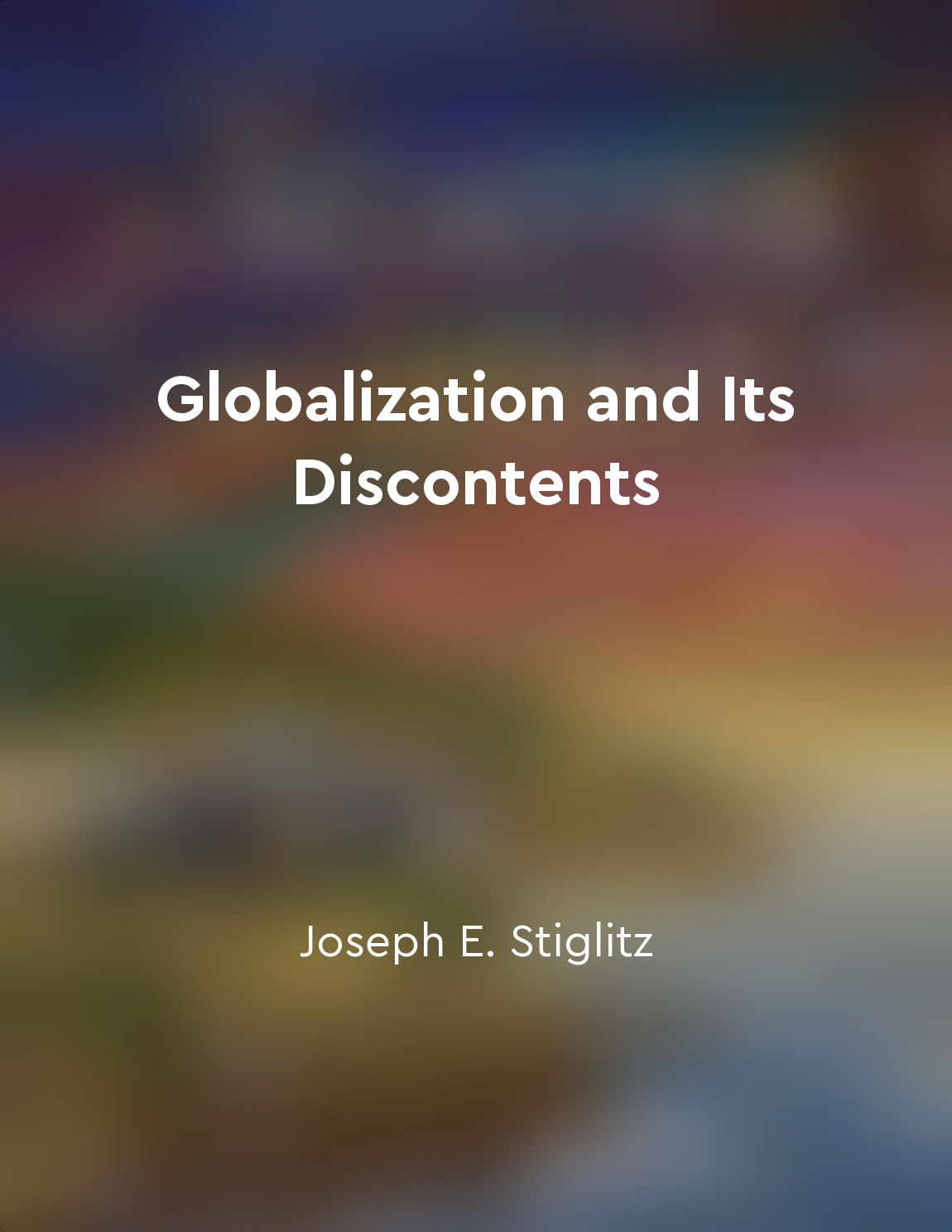Collective action necessary for societal protection from "summary" of The Great Transformation by Karl Polanyi
The transformation of society into a market economy necessitates the need for collective action to protect the social fabric from being torn apart by the forces of the market. This protection is vital to prevent the harmful consequences of a purely market-driven society where individuals are left to fend for themselves without any societal safety nets. In a market economy, the pursuit of profit becomes the driving force behind all economic activities, leading to the commodification of land, labor, and money. This commodification results in the exploitation of natural resources, the degradation of the environment, and the exploitation of workers as they are treated as mere inputs to be used and discarded without regard for their well-being. In order to protect society from these harmful consequences, collective action is necessary to establish social institutions that can regulate the market and ensure that it serves the needs of society rather than the other way around. These institutions can take the form of government regulations, labor unions, and social welfare programs that provide a safety net for those who are adversely affected by the market forces. Without such collective action, society risks being engulfed by the destructive forces of the market, leading to social unrest, inequality, and instability. It is only through a concerted effort to protect the social fabric through collective action that society can ensure its own survival and well-being in the face of the relentless march of the market forces. In this way, the concept of collective action for societal protection is not just a theoretical idea but a practical necessity for the survival and flourishing of society in a market economy. It is only through the concerted efforts of individuals coming together to protect their common interests that society can truly thrive and prosper in the face of the challenges posed by the market forces.Similar Posts

Personal responsibility is key
The notion of personal responsibility is central to the argument for a free society. Individuals must take responsibility for t...
The division of labor enhances productivity
The division of labor is a critical concept in understanding how productivity can be increased within an economy. By breaking d...
Incentives drive human behavior
Human behavior is largely driven by the incentives that individuals face in their daily lives. When people are presented with i...

Globalization has led to the erosion of worker rights in many countries
Globalization has resulted in a race to the bottom in terms of workers' rights in many countries. As companies seek to cut cost...
Market forces threaten social welfare
The idea that market forces pose a threat to social welfare is a central theme in understanding the complex relationship betwee...
Loss of trust in institutions weakens social cohesion
The erosion of trust in institutions is a dangerous omen for society. When people lose faith in the systems that are meant to s...
